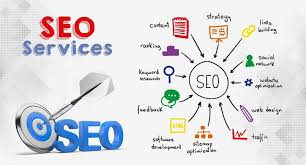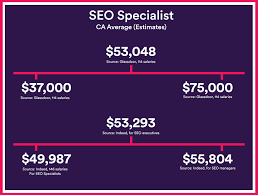Discover the Top 50 PR Agencies Setting the Standard in Communication Excellence
The Top 50 PR Agencies That Are Setting the Standard in Communication
Public Relations (PR) agencies play a crucial role in helping businesses and individuals manage their reputation, build brand awareness, and navigate the complex world of media and communication. Here are the top 50 PR agencies that are leading the way in delivering exceptional results:
- Hill+Knowlton Strategies
- Ogilvy
- Edelman
- Weber Shandwick
- FleishmanHillard
- Ketchum
- Burson Cohn & Wolfe (BCW)
- Porter Novelli
- Golin
- M&C Saatchi PR
- Ruder Finn
- Lansons
These agencies have demonstrated excellence in strategic communication, creativity, and innovation. They have helped clients across various industries achieve their communication goals and stand out in a competitive market.
Whether it’s crisis management, media relations, content creation, or digital strategy, these top PR agencies have the expertise and experience to deliver impactful campaigns that resonate with audiences and drive results.
By partnering with one of these top 50 PR agencies, businesses can benefit from their industry knowledge, strong media relationships, and proven track record of success. These agencies are setting the standard for excellence in the field of public relations and continue to raise the bar for effective communication strategies.
If you are looking to elevate your brand’s reputation and reach new heights in your communication efforts, consider partnering with one of these top 50 PR agencies to help you achieve your goals.
Top 50 PR Agencies: Key Questions Answered for Businesses and Individuals
- 1. What are the top 50 PR agencies and how are they ranked?
- 2. How can a business benefit from hiring one of the top 50 PR agencies?
- 3. What services do the top 50 PR agencies offer to their clients?
- 4. How do the top 50 PR agencies help businesses manage their reputation?
- 5. Are there specific industries that the top 50 PR agencies specialise in?
- 6. How can businesses determine which of the top 50 PR agencies is the best fit for their needs?
- 7. What sets the top 50 PR agencies apart from other communication firms?
- 8. Can small businesses or individuals afford to work with one of the top 50 PR agencies?
1. What are the top 50 PR agencies and how are they ranked?
When it comes to the question of what the top 50 PR agencies are and how they are ranked, it’s important to consider various factors that contribute to their standing in the industry. The ranking of PR agencies is often determined by their track record of success, client satisfaction, industry reputation, awards and accolades received, innovative approaches to communication, as well as the expertise and experience of their team members. Agencies that consistently deliver exceptional results, demonstrate creativity and strategic thinking, and maintain strong relationships with clients and media outlets tend to be recognised as top performers in the field. By evaluating these key criteria, industry experts and publications compile lists of the top 50 PR agencies that are setting the standard for excellence in communication.
2. How can a business benefit from hiring one of the top 50 PR agencies?
Hiring one of the top 50 PR agencies can provide numerous benefits to a business. These agencies bring a wealth of experience, industry knowledge, and strategic expertise to the table, enabling businesses to enhance their communication efforts and achieve their goals effectively. By partnering with a top PR agency, businesses can access a network of media contacts, creative talent, and innovative strategies that can help them build brand awareness, manage their reputation, navigate crises, and engage with their target audience in a meaningful way. The track record of success and proven results that these top agencies offer can significantly elevate a business’s communication efforts and set them apart in a competitive market.
3. What services do the top 50 PR agencies offer to their clients?
The top 50 PR agencies offer a comprehensive range of services to their clients, tailored to meet their specific communication needs and objectives. These agencies excel in providing services such as strategic communication planning, media relations, crisis management, content creation, social media management, influencer marketing, event planning, and digital strategy. They leverage their expertise and industry knowledge to develop integrated communication campaigns that drive brand awareness, engage target audiences, and enhance reputation. By offering a diverse portfolio of services, the top 50 PR agencies ensure that they can cater to the evolving needs of their clients and deliver impactful results in a competitive market landscape.
4. How do the top 50 PR agencies help businesses manage their reputation?
Businesses can rely on the expertise of the top 50 PR agencies to effectively manage their reputation through a range of strategic communication initiatives. These agencies employ a combination of media relations, crisis management, thought leadership positioning, and digital strategies to shape and protect a business’s reputation. By leveraging their in-depth industry knowledge and strong media relationships, top PR agencies can craft compelling narratives, handle potential crises with professionalism and transparency, and proactively engage with key stakeholders to build trust and credibility. Through tailored communication strategies and innovative approaches, these agencies help businesses navigate the complexities of reputation management and ensure that their brand image remains positive and resilient in the eyes of their target audience.
5. Are there specific industries that the top 50 PR agencies specialise in?
The top 50 PR agencies exhibit expertise across a wide range of industries, showcasing their versatility and adaptability to meet the unique needs of diverse clients. While some agencies may have specialisations in certain sectors such as technology, healthcare, finance, or consumer goods, many of these top agencies have demonstrated success in catering to clients from various industries. Their extensive experience and strategic approach allow them to tailor communication strategies that resonate with specific target audiences and achieve impactful results regardless of the industry. This flexibility and proficiency in adapting to different sectors contribute to the reputation and effectiveness of these top PR agencies in delivering exceptional communication services.
6. How can businesses determine which of the top 50 PR agencies is the best fit for their needs?
When businesses are faced with the decision of selecting the best PR agency from the top 50 options available, it is essential to consider several factors to determine the most suitable fit for their specific needs. Firstly, businesses should assess the PR agency’s industry expertise and track record in working with clients similar to their own. Understanding the agency’s strengths and areas of specialization can help align their capabilities with the business’s communication goals. Additionally, evaluating the agency’s communication style, approach to strategy development, and level of creativity can provide insights into how well they align with the business’s brand identity and objectives. Conducting thorough research, seeking client testimonials, and engaging in initial consultations can also aid in making an informed decision when selecting a PR agency that best fits the unique needs of a business.
7. What sets the top 50 PR agencies apart from other communication firms?
The top 50 PR agencies distinguish themselves from other communication firms through a combination of expertise, innovation, and proven results. These agencies have a deep understanding of the intricacies of the communication landscape and are adept at crafting strategic campaigns that resonate with target audiences. They excel in building strong relationships with media outlets, influencers, and stakeholders, enabling them to secure impactful placements and coverage for their clients. Moreover, the top PR agencies consistently push the boundaries of creativity and innovation, delivering campaigns that capture attention and drive engagement. Their track record of success in helping clients achieve their communication goals sets them apart as leaders in the industry.
8. Can small businesses or individuals afford to work with one of the top 50 PR agencies?
Small businesses and individuals may wonder if they can afford to work with one of the top 50 PR agencies. While these agencies are known for their expertise and track record of success, many of them offer a range of services tailored to different budgets. Some top PR agencies have specialised packages or services designed specifically for small businesses or individuals looking to enhance their communication strategies. By discussing your needs and budget with these agencies, you may find that there are options available to work within your financial constraints while still benefiting from the knowledge and experience that these top agencies bring to the table. It’s worth exploring the possibilities and discussing your goals with these agencies to see how they can help you achieve your communication objectives effectively.












